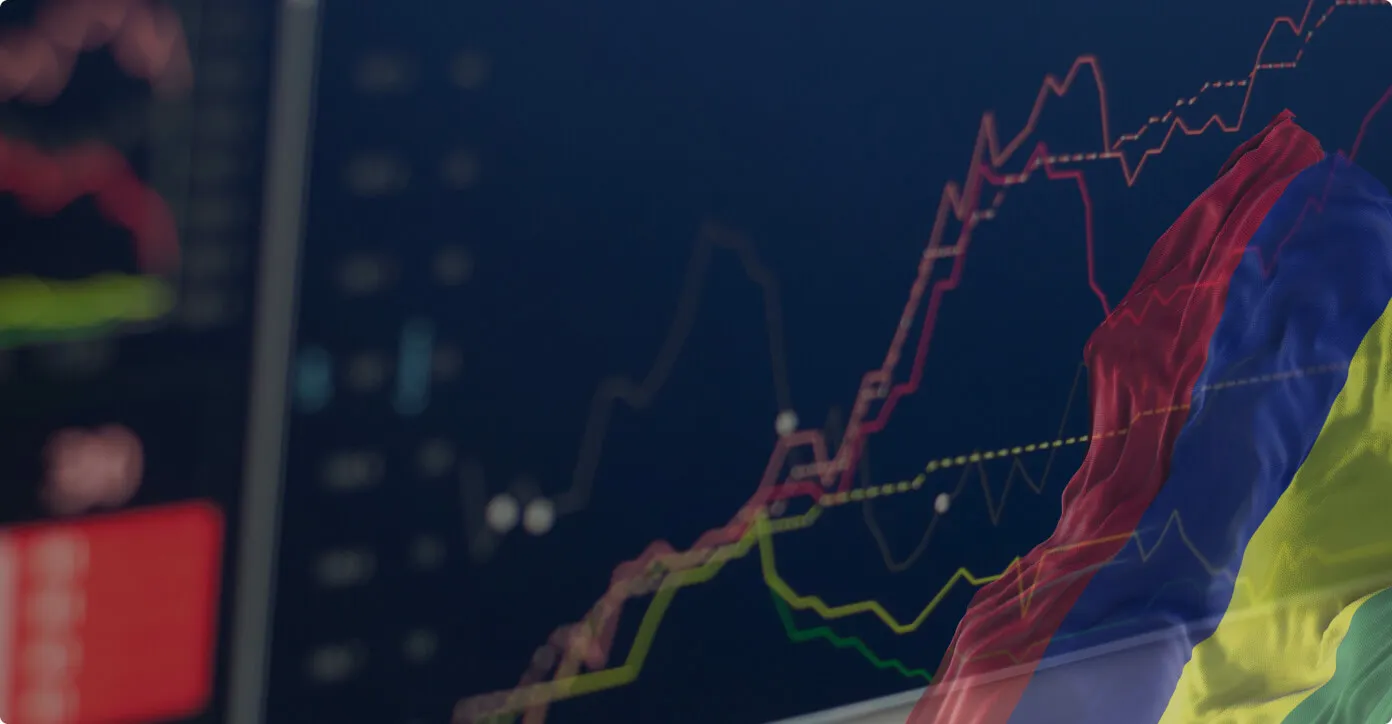The jurisdiction of Mauritius has been established as a dominant force in global financial services by implementing the Financial Services Development Act of 2001. With over 300 licensed financial institutions, the nation is held in high esteem by astute financial professionals across the globe. Businesses established offshore are privileged with an advantageous tax rate of merely 3% alongside a zero percent tax on capital gains. Additionally, the nation’s substantial restrictions on registering foreign judgments make it a tantalizing option for asset protection.
Mauritius is an excellent location for those engrossed in the Forex industry. The nation provides a Global Business License encompassing all Forex-related activities, including introducing and direct brokering. This license is well-regarded internationally, and many leading Forex brokers possess licensing from Mauritius. Acquiring a license is financially prudent and expeditious.
Advantages of Forex Mauritius License
Acquiring a forex license in Mauritius can bring several benefits to its brokerage:
- Access to a reputable and well-regulated financial center;
- Opportunity to tap into a growing market;
- Favorable tax regime;
- Political and economic stability;
- Global recognition;
- Covers all related forex activity.
Documents required:
- Scans of notarized copies of passports of all members
- Scans of notarized copies of address proof of all members
- Description of your business model, Business plan
- Source of Funds confirmation documents
- AML Policy
- Signed and dated application form
- Information on Ownership/Shareholding structure
- Branches, permanent establishments and participations in other companies
- MLRO and Deputy MLRO employment agreements
- 2 Local Directors employment agreements
- Description of IT Systems, Cybersecurity
- DPO employment agreement
*Regulator might request some additional documentation within the license application procedure
Process of obtaining a Forex License in Mauritius
COLLECTION OF PRELIMINARY DOCUMENTS
Documents required:
- Preferred company name
- Passport copies of all shareholders and directors
- Address of residence confirmation (utility bill) from all directors and shareholders
- A business model of the company (brief description 1-2 pages)
- Company structure chart
COMPANY AND TEAM SETUP
- Company registration
- Preparation of corporate documents
- Search and employment of: MLRO, DMLRO and 2 Local Directors
- Appointment of registered office and company secretary
LICENSING PROCESS
- Preparation of license application documents
- AML/KYC Policy drafting
- Submission of license application to the Financial Services Commission (FSC)
- Communication with the FSC Representative until the license is granted
CORPORATE ACCOUNT OPENING
- Analysis of the most suitable Banks/EMIs, comparison of the risk appetite of the Bank in relation to the risk appetite of the Client based on previously prepared AML policies
- Collection of necessary documents from the Client side to initiate the process (flow of funds, source of wealth, description of the purpose of opening an account, key partners, company website, utility bill, etc.)
- Guiding the Client’s company through the entire process of opening an account
Requirements for getting the Mauritius Forex License
Acquiring a license in Mauritius demands compliance with strict regulatory requirements. The Financial Services Commission (FSC) is responsible for issuing licenses and sets out the following criteria for applicants:
- Capital requirements: Forex brokers must have an authorized capital of approximately USD 24,000 to obtain a license from the FSC.
- Physical presence: Company will be obliged to rent a local office and appoint at least 2 local directors which will be a direct contact of the regulator.
- Fit and proper criteria: The FSC assesses the fitness and propriety of applicants and their key personnel, such as directors and senior management, to ensure that they are of good character and have the necessary skills and experience to operate a brokerage.
- Business plan: Applicants must submit a comprehensive business plan that outlines their proposed activities, organizational structure, and compliance arrangements.
- Anti-money laundering and counter-terrorism financing (AML/CFT) measures: Forex brokers must have adequate measures to prevent money laundering and the financing of terrorism. This includes conducting customer due diligence, maintaining records of transactions, and reporting suspicious activities to the authorities.
- Technology and risk management systems: Brokers must have robust systems in place to manage the risks associated with their business, including those related to technology, operational, and economic risks.
Opening a Forex Company in Mauritius
Mauritius’s well-developed legal system provides a robust framework for forex regulation. The primary legislation governing the economic sector, including trading, is the Financial Services Act 2007 (FSA). The FSA establishes the Financial Services Commission (FSC) as the primary regulator of the financial sector in the country.
Opening a company in Mauritius needs detailed planning and compliance with local laws and regulations. The following steps provide a general overview of the process:
- Choose a business structure: Forex firms in the country can be established as a sole proprietorship, partnership, limited liability company (LLC), or public company.
- Register your company: Organizations must be registered with the Registrar of Companies in Mauritius. This can be done online or in person at the Registrar’s office.
- Apply for a Forex license: Businesses must obtain a permit from the Financial Services Commission (FSC) to operate in Mauritius. The FSC has strict regulatory necessities, including required asset conditions, fit and proper criteria, and AML/CFT measures.
- Open a bank account: Companies must have a bank account in Mauritius to conduct their business. Banks in the country have strict due diligence procedures, including background checks on the company and its directors.
- Set up your office: Forex businesses must have an actual presence in Mauritius, including a registered office, a place of business, or a permanent establishment.
- Hire staff: Forex firms may need to hire staff to support their operations in Mauritius. This can include compliance officers, accountants, and administrative staff.
- Adhere to local laws and regulations: Companies must comply with local laws and regulations, including tax laws, labor laws, and company laws.
Forex License Overview in Mauritius
| Processing time | 6 months |
| Application fee | 6 500 USD |
| Minimum capital requirement | 22 500 USD |
| Corporate income tax | 3-15% |
| Resident employee | 2 Directors, MLRO |
| Accounting audit | Required |
| Office requirement | Required |
Legislation in Mauritius
Mauritius’s well-developed legal system provides a robust framework for forex regulation. The primary legislation governing the economic sector, including trading, is the Financial Services Act 2007 (FSA). The FSA establishes the Financial Services Commission (FSC) as the primary regulator of the financial sector in the country.
The FSC oversees and regulates brokers operating in Mauritius, including issuing requests and enforcing compliance with regulatory conditions. The FSC also has the power to impose penalties and sanctions for non-compliance.
In addition to the FSA, some other laws and regulations govern forex trading in Mauritius, including:
- Anti-Money Laundering and Countering the Financing of Terrorism (AML/CFT) Act 2009: This law provides a legal framework for preventing and detecting money laundering and terrorist financing activities.
- Securities Act 2005: This law regulates the issuance and trading of securities, including derivatives such as contracts.
- Companies Act 2001: This law regulates the formation, operation, and dissolution of businesses in Mauritius.
- Income Tax Act 1995: This law governs income taxation in the country, including income derived from trading.
Forex brokers operating in the country must comply with these laws and regulations and adhere to the guidelines and directives issued by the FSC. Failure to comply with regulatory essentials can result in penalties, sanctions, and revocation of the Forex license.
Taxation in Mauritius
Mauritius’s competitive tax regime makes it an attractive destination for brokers seeking to minimize tax liabilities. The tax system in Mauritius is controlled by the Income Tax Act 1995, which provides for a flat corporate tax rate of 15% on taxable income.
In addition to the low corporate tax rate, Mauritius also offers other tax incentives for businesses, including:
- Tax holidays;
- Double taxation avoidance agreements (DTAs);
- No withholding tax on dividends;
- No capital gains tax.
It is important to note that brokers operating in the country must comply with local tax laws and regulations, including submitting tax returns and paying taxes on time. Failure to comply with tax obligations can result in penalties, interest, and other sanctions.
FAQ about Forex License in Mauritius
How much does a Mauritius Forex License cost?
The cost of a Mauritius Forex trading license varies depending on the request type and the services the applicant offers. However, the required assets required to obtain a right in Mauritius is USD 100,000, which must always be maintained.
Is Forex Trading legal in Mauritius?
Forex trading is legal in the country. The economic sector in Mauritius is regulated by the Financial Services Commission (FSC), which oversees the licensing and regulation of brokers operating in the country. Brokers must comply with strict regulatory conditions, including AML/CFT measures.
Why choose a Forex License in Mauritius?
Choosing a Forex License in the country can offer several advantages, including access to a reputable economic center, a growing market of traders in Africa and Asia, a favorable tax regime, political and economic stability, and compliance with strict regulatory conditions.
Can foreign companies apply for a Forex Mauritius License?
Foreign companies can apply for a Mauritius License. The Financial Services Commission (FSC) does not discriminate between local and foreign applicants, and the licensing conditions are the same. Foreign companies must comply with all the regulatory requirements set out by the FSC.
How long does it take to obtain a Mauritius Forex License?
The time it takes to obtain a Mauritius Forex broker license can vary depending on various factors, such as the application’s complexity and the supporting documentation’s completeness. Generally, the process takes 4-6 months from the date of application submission to the final decision of the FSC.
Which regulatory body oversees Forex Trading in Mauritius?
The Financial Services Commission (FSC) oversees this trading in the country. The FSC is responsible for regulating and supervising the economic sector in Mauritius, including brokers. The FSC sets out strict regulatory requirements for brokers, including AML/CFT measures, fit and proper criteria, and required asset conditions.

